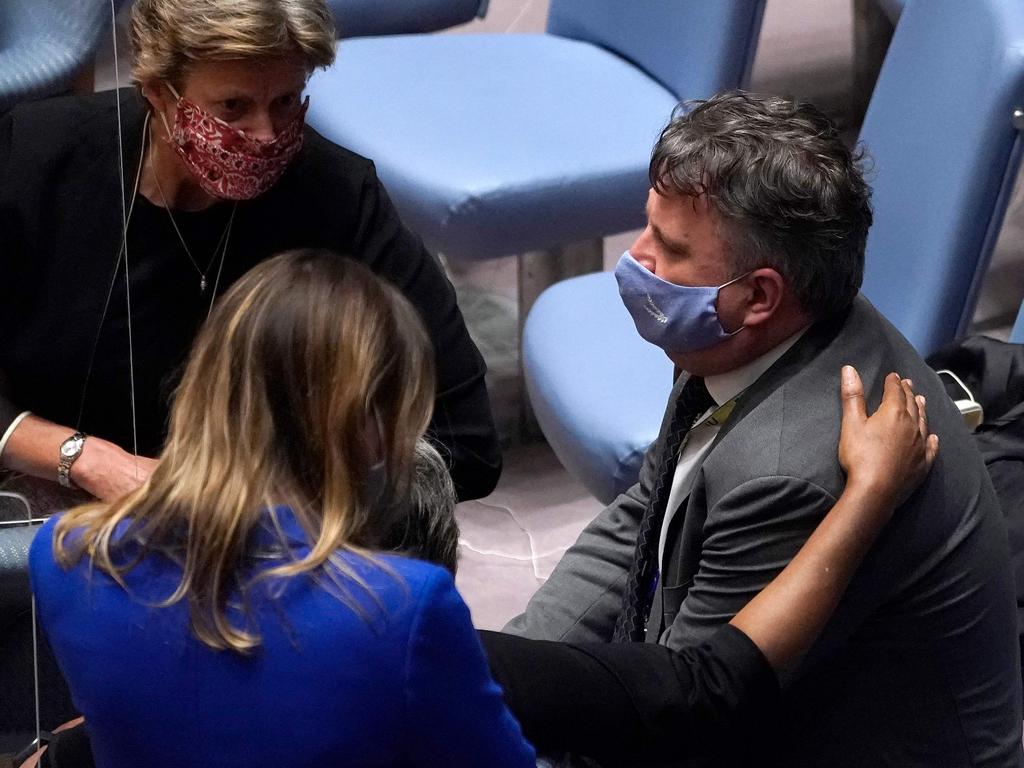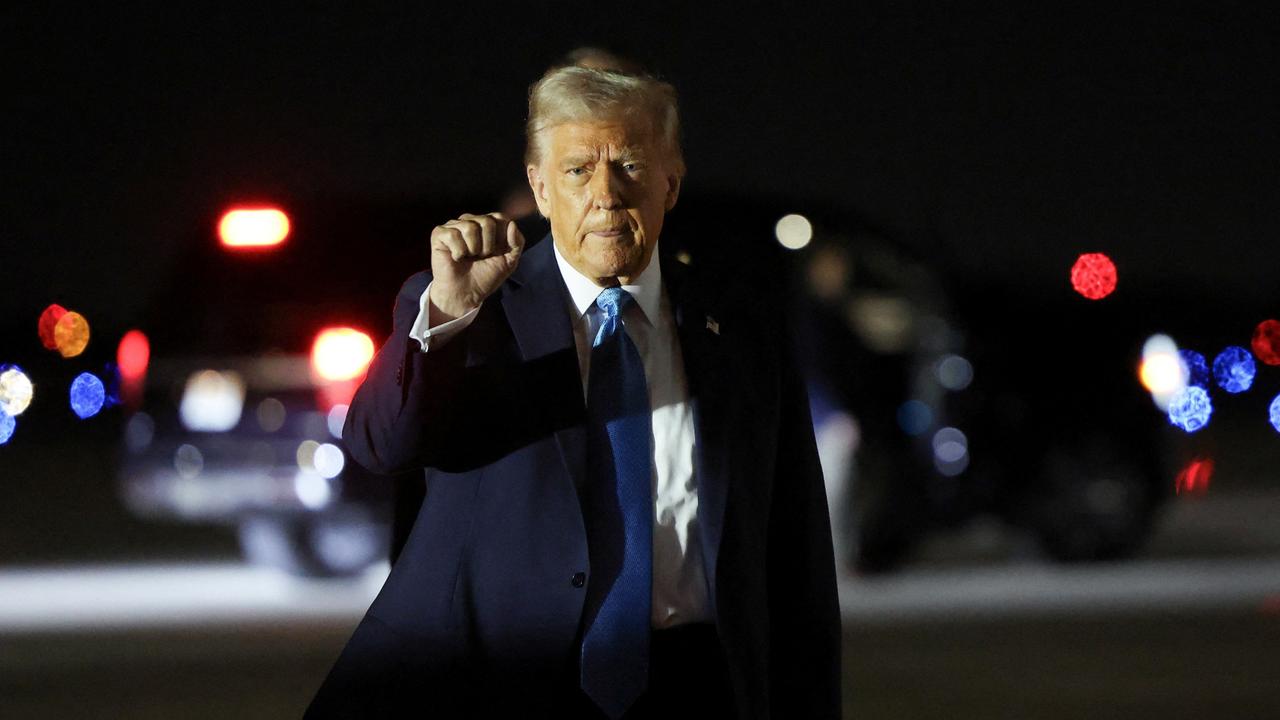Allies poised to hit Russia with broad sanctions for Ukraine invasion
The US and its allies hope a fresh tranche of penalties for Russia will have a greater deterrent effect than the first set.
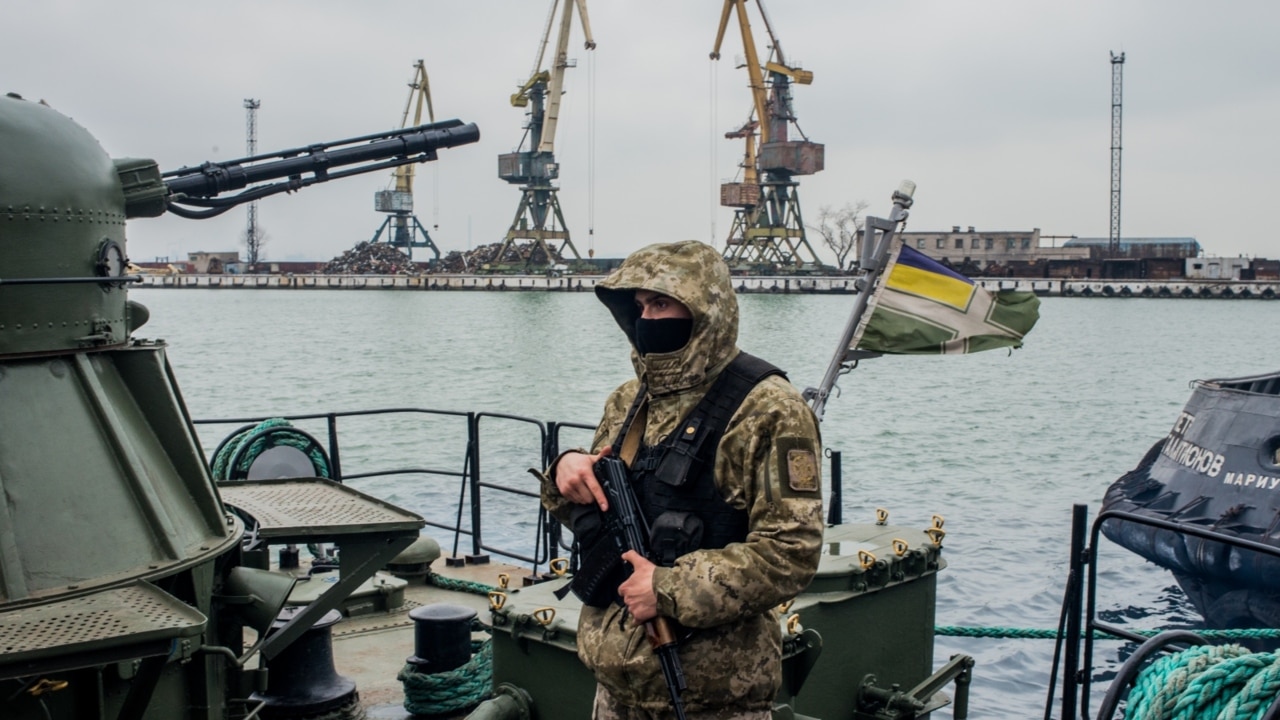
The U.S. and its allies are poised to unveil further sanctions, now that Russia has launched what President Biden called “an unprovoked and unjustified attack” on Ukraine, hoping a fresh tranche of penalties will have a greater deterrent effect than the first set.
On Tuesday, after Russian President Vladimir Putin sent troops into two breakaway regions of Ukraine, Western nations imposed sanctions on Russian sovereign debt, six Russian banks, several wealthy Russians linked to Mr. Putin’s inner circle, Defense Minister Sergei Shoigu and other high officials, and halted the Nord Stream 2 natural-gas pipeline.
A senior U.S. administration official described the measures as “only the sharp edge of the pain we can inflict” and they failed to deter a further incursion.
U.S., European Union and British officials say they had other, more powerful financial weapons in their arsenal and were primed to use them as Mr. Putin escalated. Those include sanctions on much larger Russian banks, a ban on investment in Russian gas projects, and export controls designed to deprive Russian industry of technology needed for long-term economic growth.
Late Wednesday, Mr. Biden said he would in the morning announce “further consequences” on Russia.
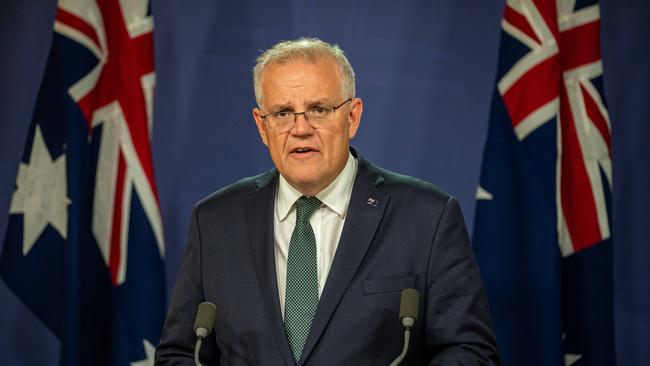
“The prayers of the entire world are with the people of Ukraine tonight as they suffer an unprovoked and unjustified attack by Russian military forces. President Putin has chosen a premeditated war that will bring a catastrophic loss of life and human suffering,” Biden said.
“Russia alone is responsible for the death and destruction this attack will bring, and the United States and its allies and partners will respond in a united and decisive way. The world will hold Russia accountable.”
On Tuesday, a senior administration official said potential plans included hitting the country’s most critical banks.
“No Russian financial institution is safe if this invasion proceeds,” the official said.
U.S. officials say that taken as a whole, the sanctions are intended to shock Russia’s financial system, jolt the country’s markets, hobble its critical industries and cripple economic growth.
They are counting on the economic pain from the sanctions to create enough political pressure on the Kremlin to force it to curb or end the campaign in Ukraine.
Beyond the fact that the first tranche failed to halt the Russian incursion, the remaining sanctions’ efficacy remains to be seen, and they could bring collateral pain to Western companies and economies.
In recent years, Mr. Putin has sought to buffer the Russian economy against potential Western sanctions. Moscow has increased its emergency money reserves that can be used to stabilize the currency. In addition, the Russian economy is stronger than it was during Moscow’s 2014 annexation of Crimea and fomentation of conflict in Ukraine’s Donbas region, which prompted the Obama administration to levy sanctions. Oil prices are on an upward trend, bolstering the country’s most important revenue source.

Mr. Putin also holds some leverage of his own: Russian energy accounts for about 40% of the gas the EU imports, and European countries have said they wouldn’t voluntarily stop buying it. EU officials have worked closely with the U.S. and other allies to increase their energy-supply options if the Kremlin responds to European sanctions by reducing its gas or oil sales to Europe.
Such broad sanctions risk raising energy prices and could hurt European economies that have deep trade and financial ties to Russia, officials and analysts say. EU nations have yet to agree on whether the bloc should establish a financial plan to compensate those that are hardest hit, and protracted conflict could threaten unity within the EU and with the U.S. and U.K.
Another major challenge for the Western nations: enforcing the export controls, especially if China chooses to help Russia circumvent the restrictions by filling in the gaps in banned technology trade, analysts and industry executives have said.
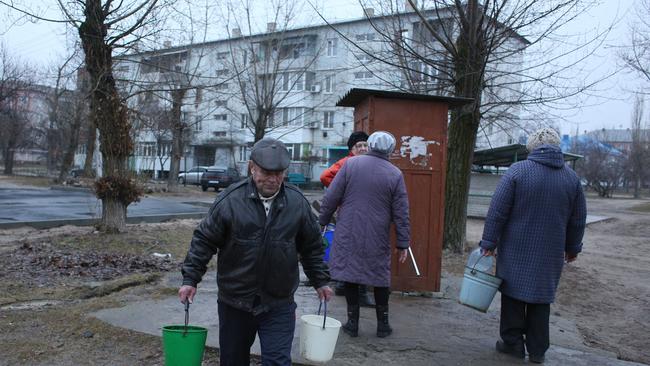
And measures against major Russian banks would make it hard for Western companies to conduct commerce that would otherwise be permitted under the sanctions regime, including imports of Russian gas and oil.
The sanctions are expected to ban any financial or business dealings with the targets, including provision of the dollars, euros and pounds that denominate most of the world’s trade and that banks hold as a safe store of asset value and emergency reserves. Besides depriving the targets of financing and raising business costs, curbs on access to the world’s largest reserve currencies can be expected to drive down the value of the Russian ruble. Such depreciation squeezes government and business budgets and diminishes household spending power.
Among the Russian banks likely to be targeted under the next round of sanctions are Sberbank and VTB, a senior administration official said recently. The two banks hold almost $750 billion in assets, more than half the total in Russia as a whole, according to the administration.
Forbidding companies and people in the West from doing business with the banks would cut them and their customers off from access to U.S. dollars and other currencies, and could trigger domestic deposit flights.
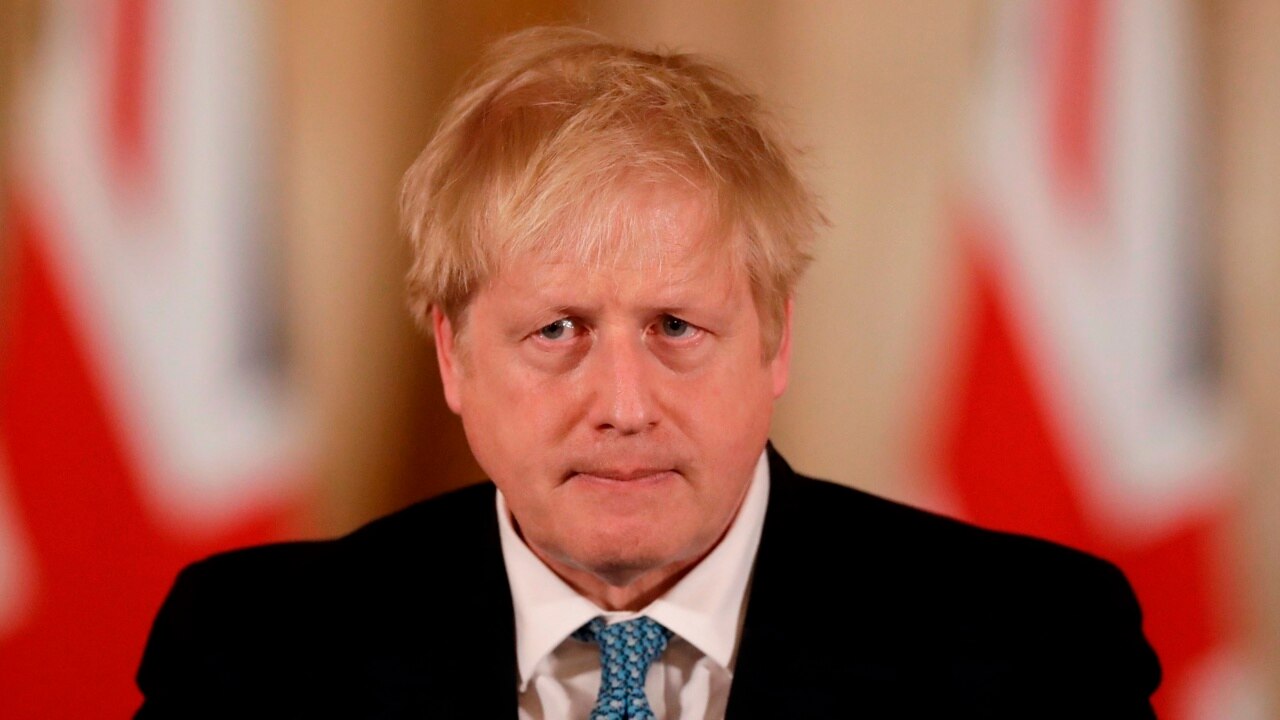
The move, however, would also hurt Western companies and governments doing business in Russia by preventing them from making payments through the country’s largest banks. International companies would have to find alternative ways to pay affected suppliers or employees. Trade could be held up as letters of credit and other financing got rerouted.
Sanctioning those large banks would disrupt companies’ import and export payments, hinder companies’ ability to raise funding and pay debt abroad, and make it harder for them to buy and sell Russian rubles.
The export controls would ban the sale of technology reliant on U.S. software and equipment to Russian entities in certain critical sectors, hindering long-term economic growth.
“We’re denying something to Russia that they need and they can’t replace from anywhere else or produce at home,” a senior administration official said.
U.S. officials have said the export controls would be implemented through a powerful policy tool known as the Foreign Direct Product Rule, which the Trump administration used to hobble China’s Huawei Technologies Co.
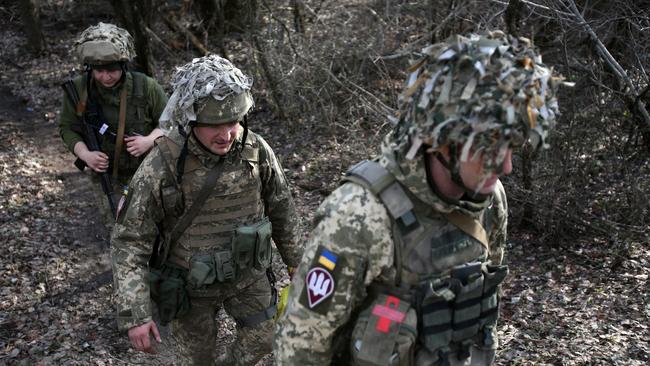
Using the rule to target several industrial sectors as opposed to a single company is a novel strategy that could potentially have wide-ranging effects, given the global dominance and ubiquity of U.S. chip-making tools and software. For example, the U.S. move could block a foreign company that makes a piece of technology in a different foreign country from selling that item to Russia, if the device uses any U.S. chips.
British officials say they have spent several weeks preparing sanctions packages. The country’s role as a major global financial center and long-term repository for investment by wealthy Russians places it at the heart of the coordinated sanction policy aimed at squeezing the Kremlin.
British officials recently said that they were working on further sanctions including plans to ban the Russian government from issuing debt on the London markets, restrict exports of key technology components to Russia and freeze the U.K. assets of a wider caste of Russian oligarchs.
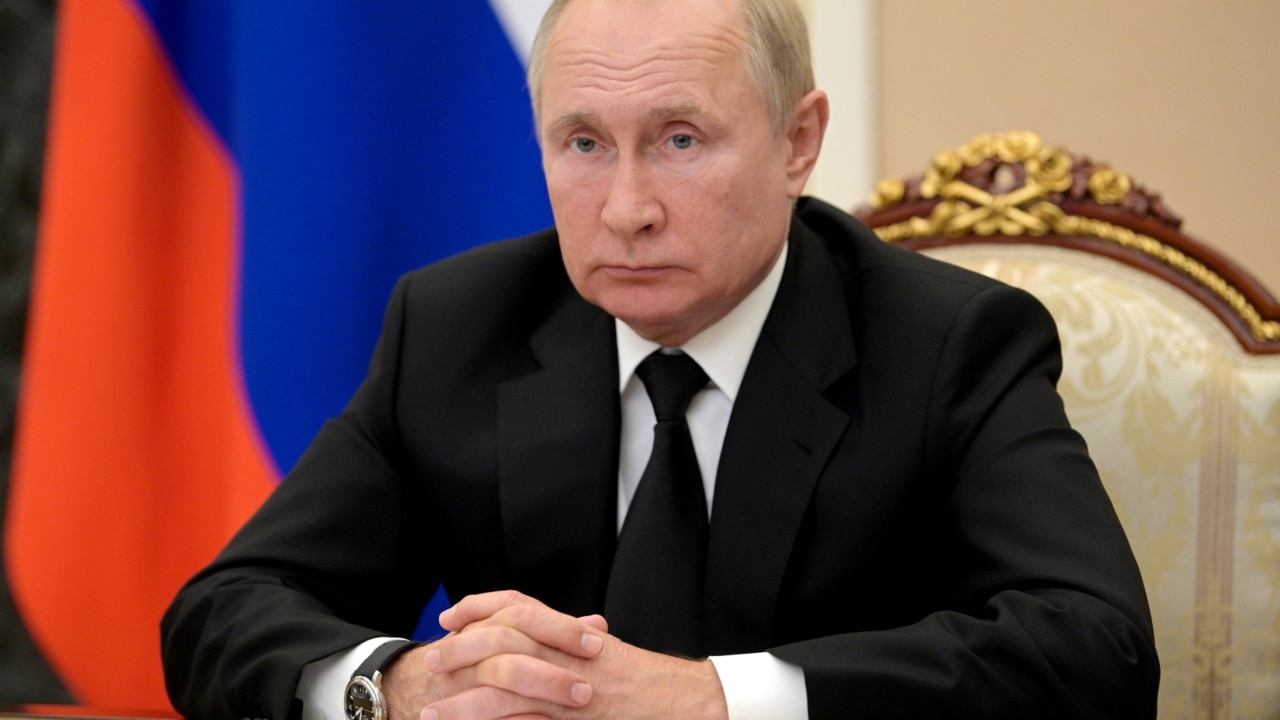
“We will hit them hard in the future,” said U.K. Prime Minister Boris Johnson. In Brussels, European officials have been working for weeks on a package of measures that is not only coordinated with Washington, London and other Western partners but can win approval from all 27 EU member states.
Diplomats said further actions from Brussels could include a block on high-tech exports for energy and other sectors, possibly including semiconductors; broad measures to lock additional Russian state and private banks out of European financial markets; a ban on new investment in Russian gas projects; and export controls for a swath of other Russian sectors.
On Wednesday, a group of EU countries pushed officials to swiftly expand the criteria under which Russians can be sanctioned to allow the bloc to go after more easily Russian oligarchs who have largely been untouched so far by the bloc’s measures.
Brussels has had to ensure that the costs of the sanctions package and any likely Russian retaliation will be fairly shared across the EU. In discussions, EU member states such as Italy, Spain, Cyprus and Germany have favored a more gradual approach to scaling up sanctions, diplomats said. France, Poland and the Baltic states have argued for ensuring Russia’s latest aggression is met with sweeping sanctions.
The Wall Street Journal.


